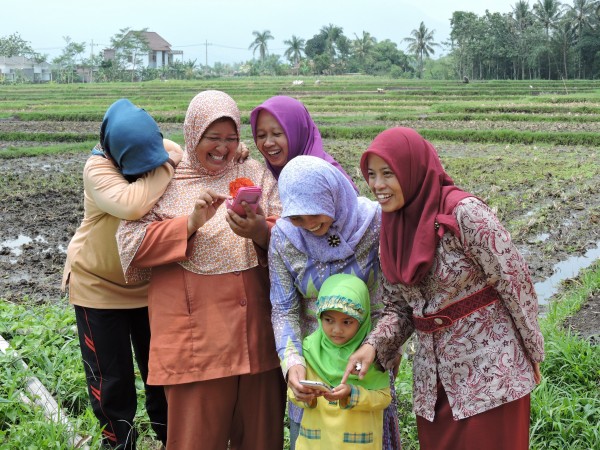For many of us, standing up, raising our voice and expressing our opinion is something we take for granted.
We can comment about government services online, protest publicly where we think these services are failing, and feed back on how we think our government can improve.
But, for many people - especially women - this is not a given. And where this happens, the inability of women to raise their voices means that critical decisions are made in forums that exclude half the community.
In Tunjungtirto Village, Indonesia, one project is making sure that women get their chance to have their say in local government, and to do so are tackling a hugely complex issue - changing attitudes to women’s role in public life.
Just because platforms for public consultation exist, doesn't mean they are accessible - are you likely to attend a meeting held at 3pm on a Tuesday?
Indonesia’s new Village Law, passed in 2014, gives Indonesia’s 73,000 Heads of Village more autonomy for village planning. It asks that they consult the village through an annual planning meeting where everyone is welcome to voice their opinions on how their village is run.
That’s how it works in theory.
But, despite significant support for the Village Law and local consultation, Mardiko Saputro, project lead for ‘Suara Kita’ (Our Voice), is keen to point out that national plans for inclusion don’t always translate into local action – especially for women. Even if childcare, work and household responsibilities could be set aside for these meetings, their lack of confidence in speaking out, in public cannot.
Women’s voices are still largely absent from annual planning meetings at the village level… how inclusive can village planning be if women aren’t included in key meetings to share their concerns and opinions?
The first step
“Suara Kita” (Our Voice) provides an SMS platform where women can feed their concerns and comments through to project staff, who will represent them at village meetings where they can’t attend – or don’t feel comfortable to.
When the project started, the team found that their female subscribers weren’t attending the planning meetings for three main reasons: lack of information, lack of time, and lack of confidence to speak out in public.
We can type our responses while we do other activities, and through SMS we feel more comfortable to say what we think - Ms. Hamzah Hidayati, Elementary School Teacher

Teachers at Tunjungtirto Village. Photo: Making All Voices Count
Changing attitudes is a long term process
Over 300 women have signed up for the service, and the team knows that while creating a working SMS-based platform takes months, building confidence and changing attitudes to women speaking up in public takes years.
They hope that ensuring women are regularly represented will start to build an accepted space for women in these meetings – and be the opening needed to support women in the village being confident to represent themselves.
Change does not happen overnight, and the team are convinced that this is the first of many steps.